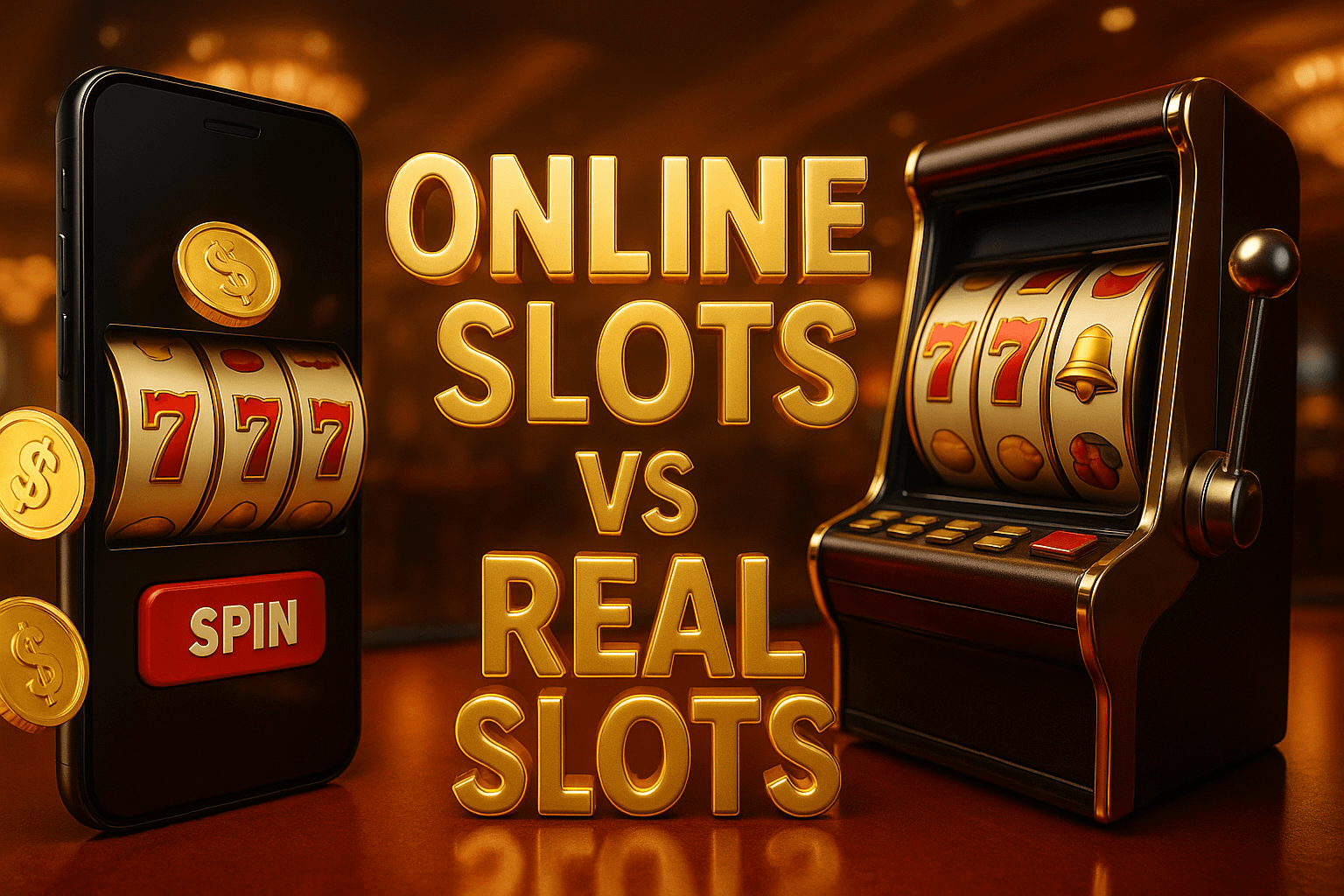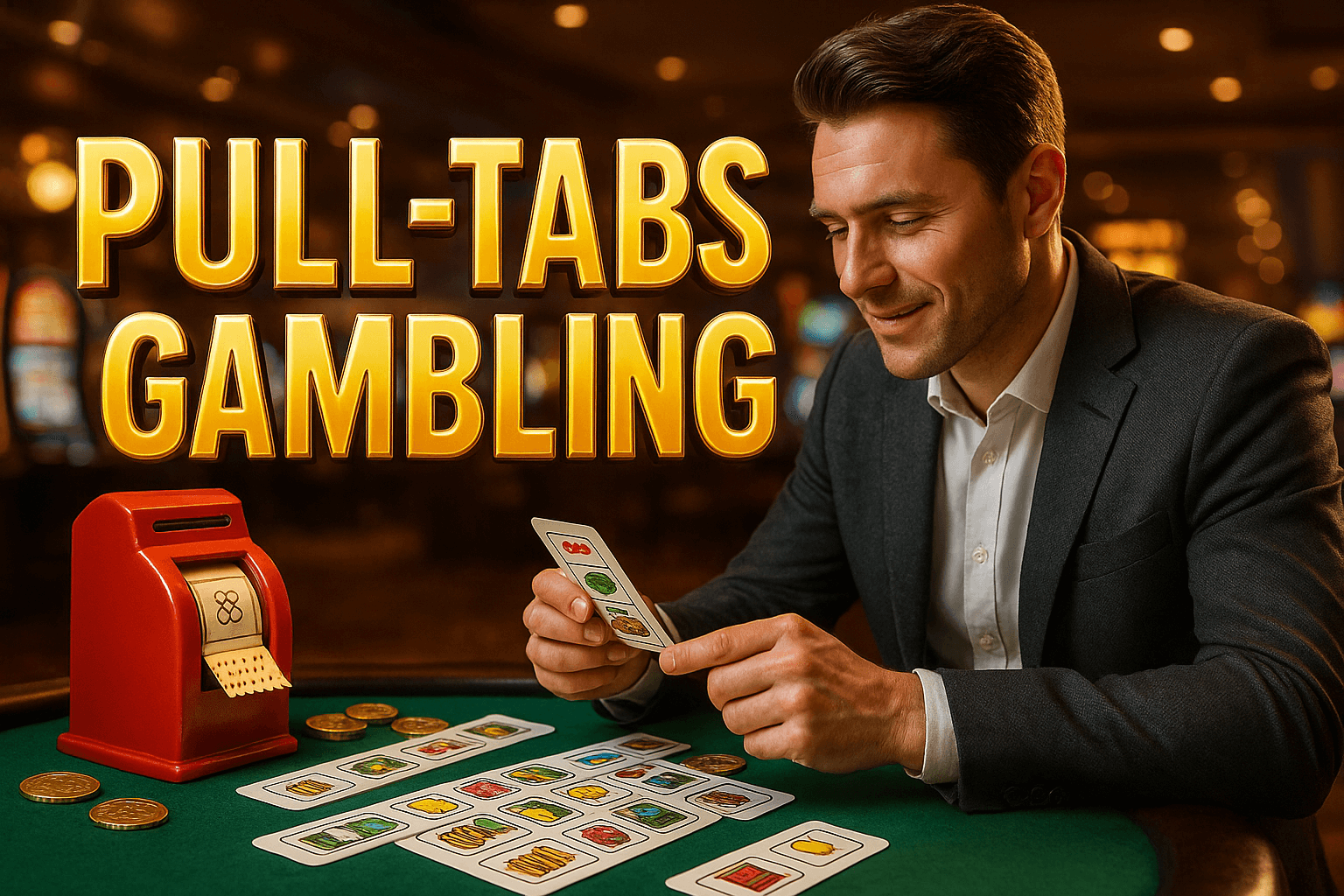Last Updated on August 7, 2025 by Caesar Fikson
Imagine your CFO walks into a quarterly review and drops this bomb: “Starting in 2026, we’ll only allow patrons to deduct 90% of their losses, not 100%.”
Let’s be real—nobody saw this coming.
Now, consider this: is your platform ready for the fallout between online slots and real slots under the new tax regime?
Online Slots vs. Real Slots
| Factor | Online Slots | Real Slots |
|---|---|---|
| Accessibility | Play anytime, anywhere with an internet connection (desktop, mobile, or tablet). | Limited to physical casino locations, requiring travel and adherence to hours. |
| Game Variety | Thousands of games with diverse themes, features, and mechanics (e.g., Megaways). | Limited to the casino’s floor space; fewer themes and features available. |
| Cost to Play | Lower minimum bets (as low as $0.01); often free-to-play demo modes. | Higher minimum bets (typically $0.25–$1); no free play options. |
| Bonuses & Promotions | Frequent bonuses (welcome offers, free spins, loyalty programs). | Rare promotions; comps limited to loyalty cards or casino rewards programs. |
| Payout Rates (RTP) | Typically higher RTP (94–98%) due to lower overhead costs. | Slightly lower RTP (85–95%) due to casino operational costs. |
| Social Experience | Limited to chat features or multiplayer modes on some platforms. | Immersive with casino atmosphere, sounds, and social interactions. |
| Convenience | No travel required; instant access and easy account management. | Requires physical presence; may involve waiting for machines. |
| Game Features | Advanced graphics, animations, and interactive bonus rounds. | Basic graphics and features, especially on older machines. |
| Payment Options | Multiple methods (crypto, e-wallets, cards); fast digital withdrawals. | Cash or casino tickets; withdrawals often require in-person processing. |
| Security | Secure with SSL encryption and regulated platforms; RNG audited for fairness. | Physically secure but reliant on casino’s integrity; mechanical RNG concerns. |
Notes
- RTP (Return to Player): Online slots often have higher RTPs because online platforms have lower operational costs compared to physical casinos.
- Social Experience: Real slots offer a tactile and social experience that online slots can’t fully replicate, though some online platforms include live chat or community features.
- Regulation: Online slots from reputable providers (e.g., licensed in Malta or Curacao) are audited for fairness, similar to how physical slot machines are regulated by gaming commissions.
The Tax Curveball
The “One Big Beautiful Bill” lands January 1, 2026, slamming a 90% loss-deduction cap on gambling losses, up from the previous 100% allowance. This 90% deduction cap could hurt profits by raising taxable income on break-even bettors, potentially generating $1 billion in additional revenue through 2034.
Here’s the catch: professional gamblers and high-frequency players—your VIP slot aficionados—may see their after-tax returns shrink dramatically (expected to raise $1.1 billion over eight years according to AP News).
Can your platform absorb this hit?
Despite bipartisan outcry from Rep. Dina Titus and Sen. Catherine Cortez Masto pushing the FAIR Bet Act to restore full deductions, the change stands—at least for now. Senate Republicans recently blocked a rollback effort, leaving operators and affiliates bracing for tighter margins.
Key Impacts
- Taxable Income Bump: Break-even slot players owe taxes on 10% of their “phantom profits,” shifting their behavior.
- Margin Pressure: Land-based casinos (real slots) with higher overhead already operate on thinner spreads; reduced patron wins further erode revenue.
- Compliance Costs: Updating reporting systems to track adjusted loss deductions adds tech and legal expenses.
- Legislative Watch: Ongoing efforts to repeal or amend the cap require constant monitoring of bill text and voting schedules.
Online Slots vs Real Slots: Business Implications
Brick‑and‑mortar floors and digital reels both feel the squeeze, but in different ways. Online slots boast lower fixed costs—no cleaning staff or floor footprints—yet they face higher scrutiny on tax reporting and customer verification. Real slots offer tangibility and impulse spend (think bourbon‑soaked VIP rooms), but they’re burdened by property taxes and physical maintenance.
Here’s the catch: the new deduction limit shifts player preference. Patrons weighing online slots (where digital records simplify loss tracking) against real slots (where losing tickets lose their paper trail) might favor the platform that maximizes their tax write‑offs.
So, what’s your move?
- Invest in Data Transparency: Show players how your online portal’s loss-tracking dashboard can optimize their filings (and stick around your ecosystem).
- Loyalty Incentives: Real‑floor casinos might need to sweeten the pot—think free plays or tiered comps—to offset perceived tax penalties.
- Hybrid Experiences: Consider pop‐up digital lounges in Vegas or Macau properties, blending the best of both worlds.
Can your operational strategy pivot fast enough?
Market Risks and the Black‑Market Threat
Industry chatter suggests punitive tax tweaks drive punters underground, bypassing your platforms entirely. In the UK, 65% of regular gamblers said they’d turn to unregulated sites if taxes climb—risking an estimated £4.3 billion black-market stake annually and £335 million lost in government revenue. (Betting & Gaming Council survey)
Meanwhile, Frontier Economics warns that unregulated operators siphon funds with “high awareness” and “big bonuses,” undercutting your safer‑play measures.
Questions worth asking:
- Are we seeing early signs of black-market migration among our high-stakes players?
- How does an 85–95% payout ratio advantage overseas operators over our regulated 90%+ offerings?
Black‑Market Leak Risks
- Revenue Drain: Every untracked spin is a lost profit—and untaxed casino-tax contribution.
- Brand Damage: Customers associating your brand with burdensome taxes may defect to “no-questions-asked” sites.
- Regulatory Backlash: Growth in illegal play often triggers stricter rules, compounding compliance headaches.
Strategic Responses and Competitive Edge
Now, imagine a mid‑sized casino operator in Prague, juggling online and land‑based slots, facing Q1 2026 with this tax cliff. They model three scenarios: full cap, partial repeal, and temporary extension. Their takeaway? agility wins.
Actionable Insights
- Tax-Scenario Modeling: Build dynamic P&L forecasts accounting for 90% vs 100% loss deductions.
- Legislative Liaison: Partner with industry lobbyists (e.g., American Gaming Association) to stay ahead of amendments.
- Player Education: Launch a “Tax-Smart Gaming” microsite guiding high-rollers through loss-reporting—locking them into your brand.
- Product Innovation: Offer “Tax-Insured Spins” where players pay a small surcharge to offset the 10% tax exposure (trust me, that’s a big deal).
Can you make compliance a selling point instead of a speed bump?
Conclusion
The stakes have never been higher for casino operators and platform execs. This tax is a curveball for the industry, but it’s also a chance to differentiate—and to drive loyalty by solving your players’ tax headaches.
Stay proactive: consult your tax advisors, monitor the FAIR Bet Act’s progress, and retool your online‑vs‑real‑slots strategy before Jan 1, 2026. The competitive edge goes to those who see regulation as an opportunity—will you be among them?




